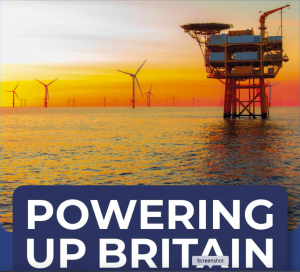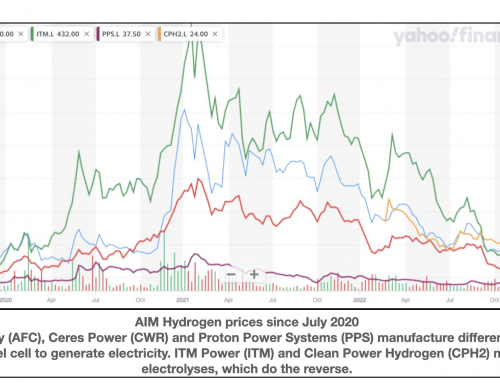By Barney Smith
In 2019 the Government amended the Climate Change Act to commit the UK to achieving net zero by 2050, compared to the previous target of an 80 per cent reduction in emissions by 2050.
At the end of March 2023 they finally released twenty-five pages of ideas as to how the UK might achieve this goal (dealt with in Greenbarrel Part I of 13 April). They also released at the same time eighty-four pages on the Energy Security Plan (to be dealt with next week in Part II). But there is lots, lots more, on e.g. the Net Zero Growth Plan, on which alone there are said to be over a hundred pages.
Most of the ideas look to the future, and while Governmental backing for new technology, like hydrogen, is welcome, there is a limit to what can be done at this stage without major additional finance. If the Treasury are to remain credible, I’m afraid they will have to put a rather more realistic sum onto the table. One possibly relevant comparison is with BP, a large, but not the largest, oil company in the world, which announced recently that in 2022 it made a record profit of some £23 billion ($28 billion).

www.gov.uk
This puts into some sort of perspective the claim that we have made a “World-leading commitment to Carbon Capture Usage and Storage by confirming the first winning projects from the £240 million Net Zero Hydrogen Fund”) One might be forgiven for asking how much was envisaged for the individual projects, since we are obviously meant to be impressed by the total size of the fund. Why else does the precise figure feature in the press notice? It is also odd, to say the least, to find a UK Government-sponsored competition for carbon capture taking place when this is a technology which has been talked of for ages as if it was already in use commercially in the UK.
A similar story goes for Nuclear, ((“We have launched Great British Nuclear (GBN) whose first priority is to launch a competitive process to select the best Small Modular Reactor technologies”) Small Modular Reactor is hardly a new technological concept; Renewables,(“Our goal is to develop up to 50GW of offshore wind by 2030 and to quintuple our solar power by 2035; a Reduction in our Reliance on fossil fuels, (“The Government has an ambition to phase out all new and replacement natural gas boilers by 2035at the latest…”); we are also moving on Decarbonising Transport, (“We are signalling our long-term plans for decarbonising road and air Travel ”); as well, we will be Speeding up Planning; and Building on our COP 26 Presidency. As expressed, none of the above needs lots more money from Government. This may be deliberate.
But the draftsmen of this plan, or package of plans, do seem to have been correct in identifying the importance of non-governmental investment for the success of this major governmental initiative. There is a section of the papers entitled ”Securing UK investment in the race to develop green industries”, which contains the following policy kernel “We do not wish to participate in a discriminatory subsidy race…..[“No money” one might more cynically observe] Our focus is on responding to investor and industry calls to provide the long-term certainty, strategic de-risking, and confidence that they need to invest…”. Absolutely.
It is not that this approach is misguided. But this initiative should have been taken before now.





